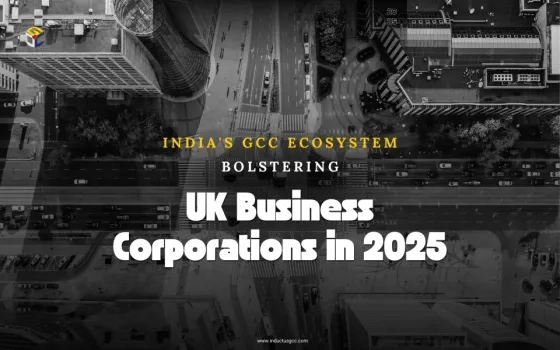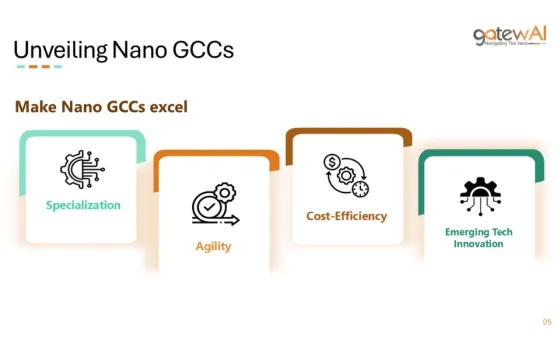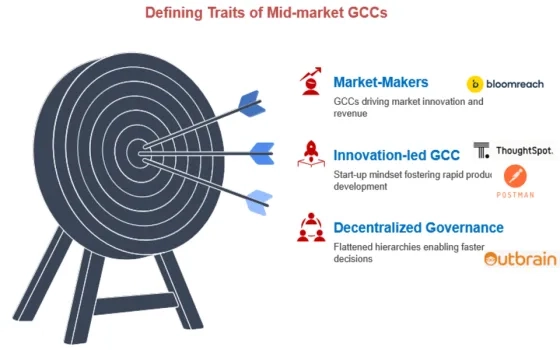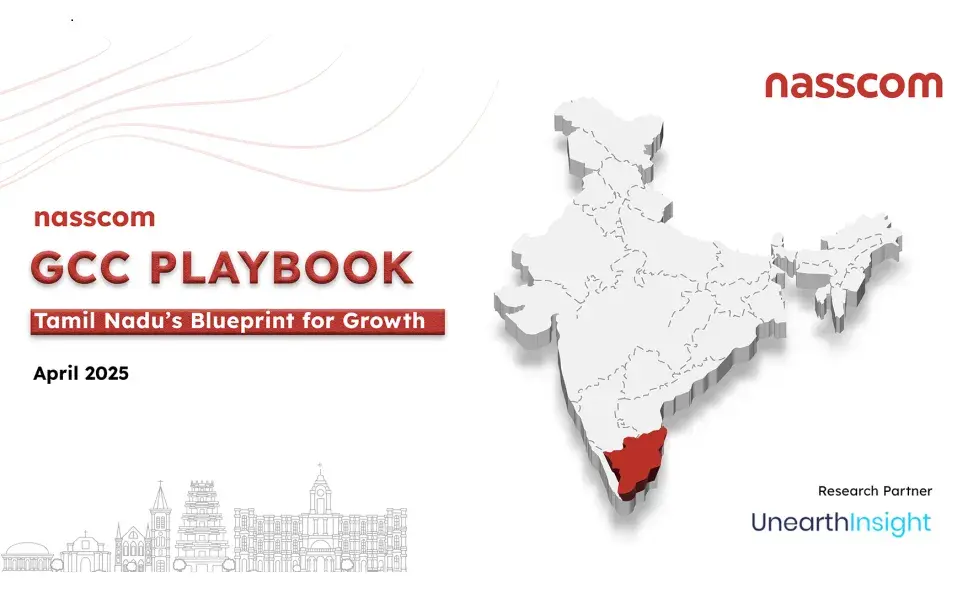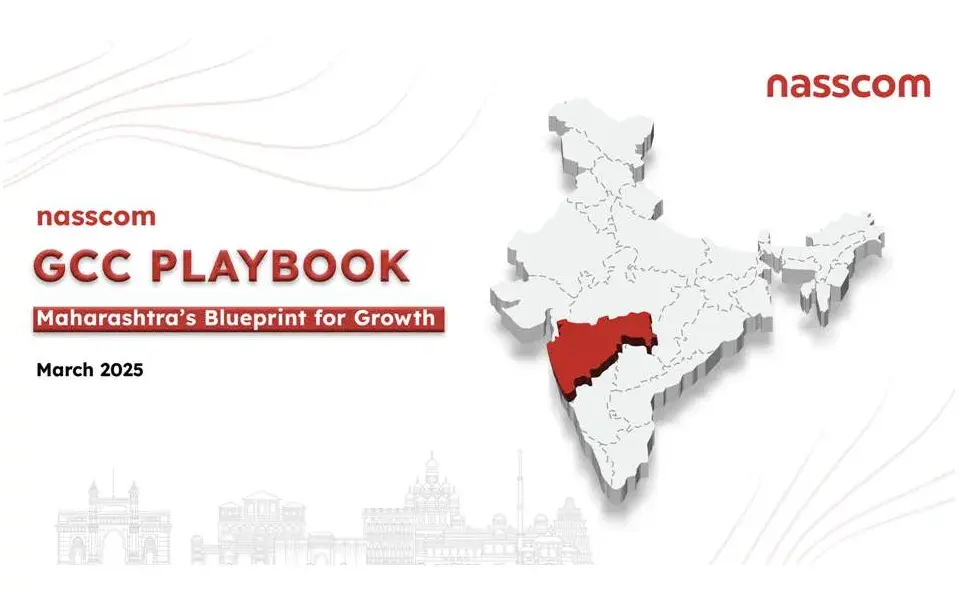India and the UK have historical trade ties that had its colonial foundation in the 1600s. The story spans centuries which is one of growing collaboration and transformation. British policies categorically shaped India’s economy which focused on raw material exports and limited industrialization. Back then were the days of spice routes, Indigo plantation, and sailing ships. Fast-forward to today, India and the UK share high-tech partnerships and billion-dollar deals thus strengthening their trade and investment for mutual prosperity. However, after India’s independence, the trade relationship had a seismic shift from the colonial dependency model to strategic economic and diplomatic cooperation.
Today, beyond goods and exports, UK business corporations increasingly rely on India for global capability centers or GCCs - the nerve centers for strategic operations. This article delves deep into why this era is all about services, technology, and global operations to drive efficiency and scalability. Read on.
Key Advantages of Indian GCCs for UK Businesses
The UK has the best chances of growth with India’s low cost solutions like digital infrastructure, highly skilled workforce, and technological advancements. Barclays and HSBC are the top examples to support the statement. Models like COPO and COPO-Digital Twin Integrated Model can monitor and boost operations in real time when setting up a global capability center in India. Learn more.
Cost-Efficiency
India has a cost-effective environment when compared to the UK or other Western countries. Labor is generally 60-70% more affordable. Further, businesses can save on administrative expenses, customer operations, and office spaces to maximize investments. Such a cost-to-quality ratio makes India a top choice for UK companies looking to increase efficiency without compromising quality. Moreover, the Indian government promotes foreign investments in GCCs through Special Economic Zones (SEZ), tax benefits, and eased regulatory norms for foreign businesses. Altogether, India is a smart and sustainable choice for growing global operations now and in the future.
Technology Integration
Indian Global capability centers are leveraging innovation, digital transformation, and advanced technology to build a futuristic business hub. The operations in these centers are backed by AI, Digital Twin, IoT, and Blockchain along with a cloud-first approach. GCCs are also turning into strategic intelligence hubs with Big Data Analytics, real-time Business Intelligence (BI), and cybersecurity and risk management applications. Additionally, with a growing ecosystem of research labs, startups, and digital skilling programs, India is fueling a ripe tech environment to help UK companies expand operations and enhance global competitiveness.
Economic Benefits
India offers tax incentives, policy support, and relaxed FDI regulations. Here’s a look:
Government Initiatives: The Indian government recognizes the importance of GCCs and is continually formulating policies to improve setups in Tier 2 cities. The core objective is to ensure widespread economic benefits by leveraging the teeming potential of these regions.
State-Level Initiatives: Karnataka is currently at the forefront of promoting GCCs and doubling the numbers of these offshore development centers by 2029. The incentives include reimbursements of rental expenses, exemptions from electricity duties, and establishment of three new tech parks. Further, the policy also focuses on AI based research projects and skill enhancement initiatives with heavy grants.
Other states like Gujarat and Madhya Pradesh have also introduced dedicated GCC policies with fiscal initiatives, infrastructure support, capex and opex assistance, loan subsidies, and regulatory ease for global businesses.
24X7 Operations
India has a strategic position on the world map and an effective time difference with the UK. This ensures uninterrupted customer support, IT services, and service management to guarantee seamless operations and business continuity. There is no need to set up a night shift in the UK since India will offer round the clock deliveries.
For instance, India is 5 hours and 30 minutes ahead of the UK which ensures time overlap while also allowing the Indian team to work after the UK hours. They pick up tasks and process data even when their foreign counterparts are offline thus maintaining a solid workflow continuity. There are fewer risks of downtime and higher chances of efficiency and issues resolution across different time zones.
Market Expansion
India consumer market is expected to grow by 46% by 2030 and the customer spending is expected to reach $4.3 trillion. This will make the nation the fastest growing markets globally with a rising demand of UK enterprises in the AI, education, healthcare, and legal services.
This will offer UK enterprises a gateway to expand their market presence in India and increase sales both within the nation and in adjacent regions like the Middle East and South Asia. They will be able to make the most of their investment and build long-term growth strategies. Further, having a presence in India means gaining deeper insights into the local market dynamics like emerging trends, regulatory requirements, and general movement in consumer behaviour to be able to serve better.
Scalability
Scaling businesses up and down is a critical factor for UK companies and GCCs in India are the perfect solution. The nation has a steady pipeline of STEM graduates who seamlessly maintain innovation and efficiency. This means, GCCs can integrate next-gen technologies without heavy upfront investments thus adapting to market changes rapidly.
Global capability centers additionally support modular and phased scaling so that foreign companies can start small and expand gradually at their pace. Such scalability potential is further being supported by SEZs and regulatory support to ensure businesses remain productive and sustainable without budget pressures.
With these, it is not hard for UK MNCs to achieve cost leadership, ensure competitiveness, and enhance operational efficiency like never before.
Challenges in the UK That Indian GCCs Solve
The UK economy expanded by a mere 0.1% in output terms in the 4th quarter of 2024. Before this, the nation witnessed 0.8% and 0.4% in Q1 and Q2 of the same year. Such economic uncertainty is the most frequent issue that is presently impacting the turnover of UK countries. On the other hand, India’s steady economic growth ( expected 6.2% in Q3 FY25) presents a significant opportunity for UK companies seeking to establish a GCC here.
The UK population is also seeing a dip in skilled workforce, the reason being an ageing population and declining fertility rate. Further, 80% of UK employers in 2024 reported that they are finding it difficult to fill positions of trained labour. However, India is producing approximately 5 million STEM graduates. Further, the country has a high birth rate which justifies its large and growing working population compared to developed nations. It is predicted that such demographic advantage will persist in the coming three decades. The UK companies, therefore, can make the best of this and drive growth in their GCCs.
Conclusion
Indian GCCs are proving to be an indispensable growth enabler for UK MNCs by offering unparalleled opportunities to optimize operations and drive innovations. Forward-thinking companies will gain a strategic advantage in the global market since such a powerful collaboration is not just promising but highly transformative.
The best way to get started is to partner with India’s leading GCC enabler, Inductus GCC. It offers Company-Owned-Partner-Operated (COPO Model), Flexi Model, and Build-Operate-Transfer (BOT) model to maximize success. Inductus has also introduced the COPO-Digital Twin Integrated Service Model helping you unlock the full potential of your global capability centers in India. We believe that innovation is the key to staying relevant and leave no stones unturned to maximize efficiency.



